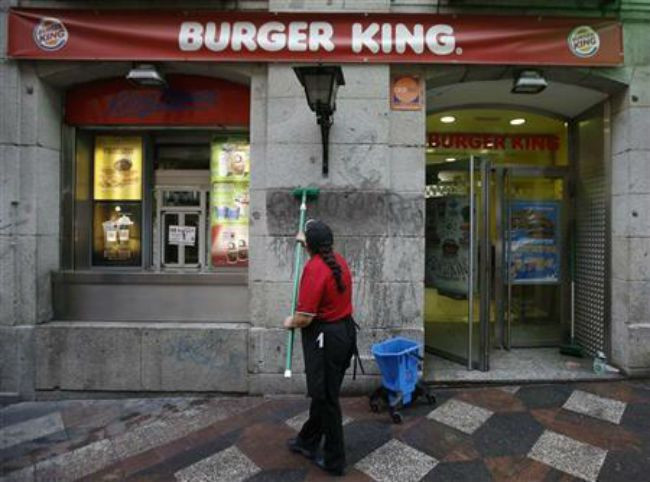
A former Brazilian banker agreed to pay $5.18 million to settle U.S. Securities and Exchange Commission charges of insider trading in Burger King Holdings Inc before the second-largest U.S. fast-food chain agreed to a 2010 buyout.
According to the regulator, the former banker, Igor Cornelsen, 64, prodded his broker, Waldyr Da Silva Prado Neto, for tips after Prado, who then worked at Wells Fargo & Co (WFC.N), had learned from a customer that Burger King was up for sale.
Burger King agreed on September 2, 2010, to be bought by private equity firm 3G Capital Partners Ltd for $3.26 billion, or $24 per share.
That was about 46 percent above the share price when rumors that the maker of Whopper hamburgers might be acquired had surfaced two days earlier.
The SEC said Cornelsen had begun trading Burger King call options, a bet the stock would rise, on May 18, 2010, one day after Prado told him in an email written in Portuguese, "I have some info ... You have to hear this."
Cornelsen would subsequently seek tips by sending cryptic emails, saying such things in Portuguese as "Is the sandwich deal going to happen?" the SEC said.
Finally, the regulator said that upon realizing how much he had made after the takeover was announced, Cornelsen exclaimed in an email to Prado, in English this time, "Wow! What a day!"
Friday's settlement requires court approval. It calls for Cornelsen, a resident of the Bahamas, and his firm, Bainbridge Group Inc, to pay a $3.36 million fine, give up $1.68 million of illegal profit and pay $136,621 of interest.
James Benjamin, a partner at Akin Gump Strauss Hauer & Feld who represents Cornelsen, had no immediate comment.
The SEC filed related insider trading charges against Prado, 42, on September 20 and won a court order freezing his assets. It said that litigation is continuing.
Now called Burger King Worldwide Holdings Inc (BKW.N), the Miami-based company again became publicly traded on June 20 through a "reverse merger" involving a shell company co-founded by hedge fund manager William Ackman.
The case is SEC v. Cornelsen et al, U.S. District Court, Southern District of New York.
© Thomson Reuters.




